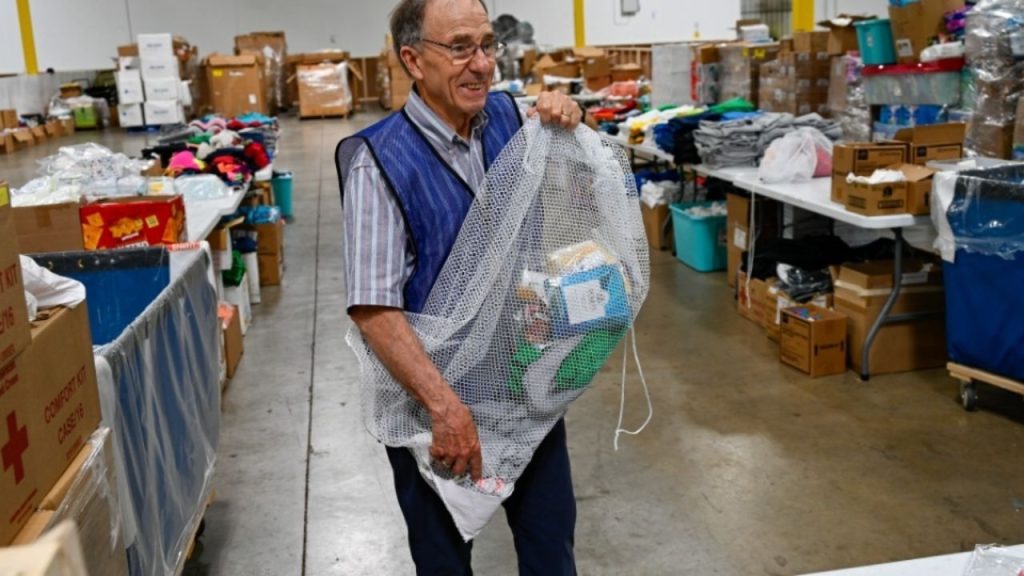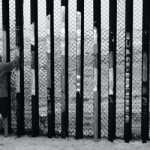Watch: How an interfaith center aids migrants

As an influx of refugees enters the United States, faith groups have come together to help provide resources for new arrivals.
Following Russia’s invasion of Ukraine, many Ukrainians have been displaced while fleeing for safety. The U.S. is currently accepting up to 100,000 refugees from Ukraine with the intention of expanding that threshold. While resettlement agencies work tirelessly to aid as many incoming refugees as possible, faith groups have come together to shoulder some of that responsibility.
The Jewish refugee agency HIAS (originally the Hebrew Immigrant Aid Society), for example, has partnered with the Buddhist group, Village Zendo, in an interfaith effort to support Ukrainian refugees in New York through navigating social services and finding homes. Meanwhile, nonprofits such as Episcopal Migration Ministries and Home for Refugees have collaborated with other Christian organizations in order to help new arrivals find permanent residence, host families, and provide English tutoring.
The Church of Jesus Christ of Latter-day Saints has joined local faith and community partners in Houston to provide short-term respite for migrant families who have been cleared at the border and need shelter, food, hygiene facilities and other assistance.
The Family Transfer Center, owned by the National Association of Christian Churches (NACC), is the fruit of a collaboration with The Church of Jesus Christ of Latter-day Saints, Catholic Charities, YMCA International Services, Texas Adventist Community Services, Houston Responds and the Houston Food Bank. These organizations fund and staff the facility.
“This center is an example of the tremendous good that can result when the community comes together as one to offer resources to ease the burden of others,” said Elder Carlos Villarreal, an Area Seventy in Texas. “We want these migrant families to feel safe, welcome and comfortable as they continue their journey.” The facility serves those who have been cleared at the United States/Mexico border. Individuals will arrive at the center by bus and receive the help they need.
MORE: Faith facts about immigration and refugees
It has the ability to assist up to 500 individuals a day. In most cases, migrants will stay at the building for 24 hours while they make travel arrangements to reunite with family and sponsors. “We are all about welcoming the stranger. That is what God calls on us to do,” said Betsy Ballard, communications director of Catholic Charities of the Archdiocese of Galveston-Houston.
Urvaniti Stephanie Lamaur of Haiti was staying at the center last June with her twin sons after traversing Central America, mostly on foot. Speaking through a translator, she told of how they almost drowned in Nicaragua. The family has received clothing and food at the facility and hopes to meet up with relatives in New Jersey soon.
Charlene and Brent Lee, originally from Idaho, are serving as humanitarian missionaries at the center. “For people coming through, they need hygiene items—sweatpants, T-shirts or some kind of shirts—and the kids need to be outfitted about the same way,” Brent Lee explained.
Afghan refugees have also benefited greatly from aid provided by faith-based organizations. With the Taliban’s takeover of Afghanistan, organizations have helped provide refugees with shelter. The U.S. Conference of Catholic Bishops has coordinated temporary housing for Afghan refugees on military bases, while the humanitarian sector of The Church of Jesus Christ of Latter-day Saints has provided refugees personal hygiene products, underwear, shoes, and toys. The Islamic Circle of North America Relief has furnished apartments for refugees, and the Refugee Resettlement Program for Catholic Charities has made it their mission to provide homes new arrivals can feel safe in.
Support from faith-based organizations continues to come from not only the organizational level but the individual level as well, with volunteers donating their time, money, and supplies to help refugees make the transition. During these troubling times it is heartwarming to see the impact interfaith work has had, with groups of various religions rallying together to ensure the comfort and safety of migrants.



